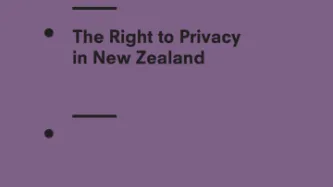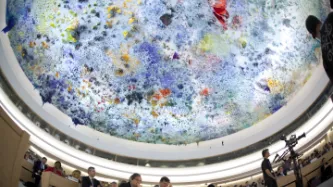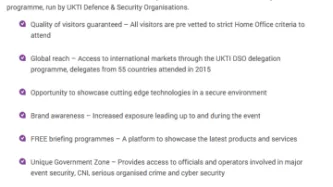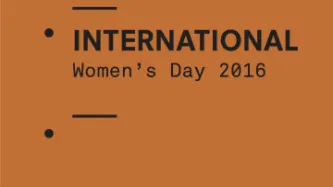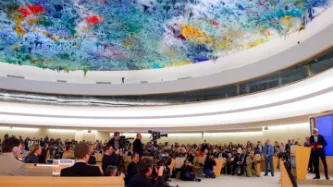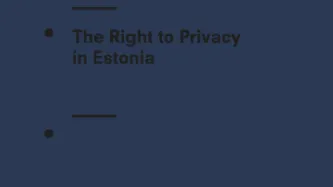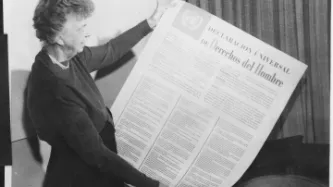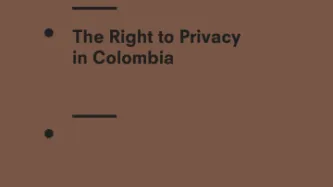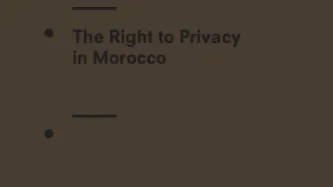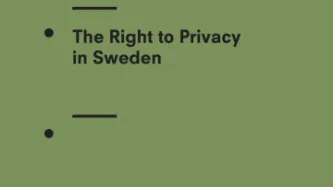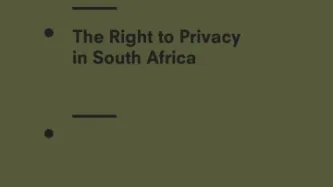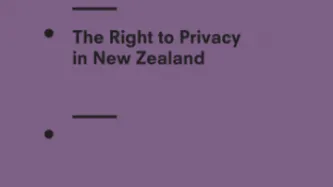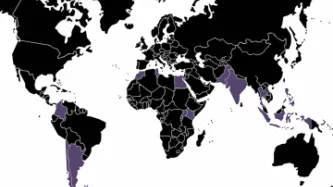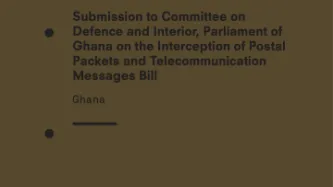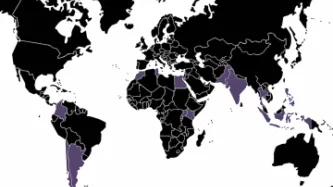Advanced Search
Content Type: Long Read
“This is my personal opinion,” concedes Branko, a taxi driver in Skopje, the Republic of Macedonia's capital. “It was done by America to stop Putin building his gas pipe line through Macedonia.”
“This is just politics,” he advises, skeptically.
It's a common reaction to the wiretapping scandal in Macedonia. Beginning in February last year when opposition leader Zoran Zaev posted a series of wiretaps online that he called 'bombs' – they seemingly showed that for years the phone calls of some…
Content Type: Long Read
The recent back and forth between Apple and the FBI over security measures in place to prevent unauthorised access to data has highlighted the gulf in understanding of security between technologists and law enforcement. Modern debates around security do not just involve the state and the individual, the private sector plays a very real role too. There are worrying implications for the safety and security of our devices. Today, a new company stepped in to this discussion -- though it had been…
Content Type: News & Analysis
This is a guest post by Jasna Koteska. Read Privacy International's full report documenting stories of mass surveillance in Macedonia here.
What are the main similarities and differences between modern surveillance methods in Macedonia and those of the socialist period?
In all 46 years of communist Macedonia, the total official number of personal communist surveillance files is 14,572. Unofficial sources report more than 50,000 files. The number of direct 'snitches' in communist…
Content Type: News & Analysis
If you were to buy ‘Anna Karenina’ online, you would be told that people who bought Tolstoy’s classic also bought Dostoevsky’s ‘Crime and Punishment’. But if you've just read an 848 page epic Russian novel, do you really want your follow up to be a 1,008 page epic Russian novel? Maybe you want to read something very different next, maybe some contemporary American short stories, such as ’No one belongs here more than you’ by Miranda July? But you know, I don't think the…
Content Type: Report
Privacy International notes New Zealand’s written replies to the list of issues prior to reporting in relation to the New Zealand’s laws, policies and practices related to interception of personal communications.
A review of the security and intelligence legislation is currently underway in accordance with the Intelligence and Security Committee Act. It is expected that the Parliament will consider the review in 2016. Hence this represents a significant opportunity to amend the current…
Content Type: News & Analysis
We are on the verge of a revolution in government surveillance powers.
Previously it was simple. Governments demanded access to our homes. Then our communications. Then they demanded access to whatever companies held on us. Then they complained that technology was making this harder, and demanded that technology be designed for them. With every step, safeguards were reduced.
Next governments will demand that companies betray their users and use our technologies to compromise us.
In…
Content Type: News & Analysis
This article originally appeared in The Guardian's Comment Is Free section.
News of the legal dispute between Apple and the FBI has made headlines across the world. The dispute stems from the FBI’s investigation of the 2015 mass shooting in San Bernardino, California. As part of its investigation, the FBI obtained an iPhone used by one of the deceased shooters, Syed Farook. The data on the iPhone is encrypted and the FBI wants Apple to create new software that…
Content Type: News & Analysis
Privacy International and ARTICLE 19 last week submitted to members of the Parliament of Ghana's Defence and Interior Committee calling for it to abandon rushing through a controversial new surveillance Bill. The Interception of Postal Packets and Telecommunication Messages Bill (2015) allows the interception of all communications for the undefined purposes of “protecting national security” and “fighting crime generally.” Announced on February 19th 2016, the committee in charge of pushing it…
Content Type: Press release
Today the Investigatory Powers Bill had its second reading in the House of Commons. Instead of listening to negative public response to the Bill, and evolving EU law precedent, the UK Government continues to fully advocate for the Bill's prompt passage through Parliament.
Privacy International Director of Campaigns, Harmit Kambo said:
"Today's second reading debate was a missed opportunity to put a brake on new surveillance powers that fundamentally shift the balance of power between…
Content Type: Advocacy
Below is Privacy International’s oral statement to the Human Rights Council 31st ordinary session, 9 March 2016 Inter-active dialogue with the UN Special Rapporteur on the right to privacy. Privacy International's written statement is here.
BEGIN
Mr. President,
Privacy International welcomes the opportunity to participate in this first inter-active dialogue with the Special Rapporteur on the right to privacy. We regret however the Rapporteur’s late submission of his report.…
Content Type: News & Analysis
Surveillance companies and government officials from across the world are gathering in the UK this week at the invitation of the Home Office for the UK’s “Premier Security and Law Enforcement Event’, one week after the controversial spying legislation, entitled the Investigatory Powers Bill, had its first reading in Parliament.
Delegates and companies will be attending the three-day long ‘Security and Policing’ trade show in Farnborough, the historical centre of the UK’s aerospace industry.…
Content Type: Report
The right to privacy is a qualified right. Gender is not and cannot be its qualification.
For this year’s International Women’s Day, the Privacy International Network is sharing some of its successes as well as the challenges and opportunities we face in at the intersection of gender issues and the right to privacy. Click here to see this feature.
Interferences and violations of the right to privacy, as described in the UN Declaration of Human Rights, affect society as a whole. However,…
Content Type: Advocacy
In his first report to the UN Human Rights Council (the main UN human rights political body composed of 47 states from around the world), the UN Special Rapporteur on the Right to Privacy has offered a scathing critique on the UK Investigatory Powers Bill. In particular the Rapporteur noted how bulk surveillance powers, including bulk hacking, are disproportionate and violate the right to privacy as established by human rights courts. The Rapporteur noted that the powers proposed in the…
Content Type: News & Analysis
A new illegal spying scandal in Colombia involving the National Police has brought about the resignation of the Chief of the National Police, set off an investigation by the country’s Inspector General and brought the issue of illegal surveillance by Colombian authorities back into the national discussion.
With another institution engulfed in a spying scandal, it begs the question: just how many more of these can Colombia take before something finally changes?
Privacy International’s report…
Content Type: Advocacy
Article 17 of the International Covenant on Civil and Political Rights (ICCPR) provides for the right of every person to be protected against arbitrary or unlawful interference with his privacy, family, home or correspondence as well as against unlawful attacks on his honour or reputation. Any interference with the right to privacy can only be justified if it is in accordance with the law, has a legitimate objective and is conducted in a way that is necessary and proportionate. Surveillance…
Content Type: News & Analysis
This week will see the right to privacy take center stage at the UN in Geneva.
The UN Special rapporteur on the right to privacy will present his first report to the UN Human Rights Council on Wednesday 9 March. Meanwhile the Human Rights Committee will review the records of surveillance and the right to privacy of South Africa and Sweden among others.
The new Special Rapporteur on the right to privacy
A year ago the Human Rights Council established the mandate of the Special…
Content Type: Advocacy
Article 17 of the International Covenant on Civil and Political Rights (ICCPR) provides for the right of every person to be protected against arbitrary or unlawful interference with his privacy, family, home or correspondence as well as against unlawful attacks on his honour or reputation. Any interference with the right to privacy can only be justified if it is in accordance with the law, has a legitimate objective and is conducted in a way that is necessary and proportionate. Surveillance…
Content Type: Advocacy
Article 17 of the International Covenant on Civil and Political Rights (ICCPR) provides for the right of every person to be protected against arbitrary or unlawful interference with his privacy, family, home or correspondence as well as against unlawful attacks on his honour or reputation. Any interference with the right to privacy can only be justified if it is in accordance with the law, has a legitimate objective and is conducted in a way that is necessary and proportionate. Surveillance…
Content Type: Advocacy
Privacy International, Civil Rights Defenders and DFRI note Sweden’s written replies to the list of issues in relation to Swedish laws, policies and practices on interception of personal communications.
The following comments are based on the analysis of the Swedish legislation, as well as policies and practices on surveillance by Privacy International, Civil Rights Defenders and DFRI.
Content Type: Advocacy
Privacy International, Right2Know, and the Association for Progressive Communications (hereinafter “the organisations”) note the written replies by the government of South Africa to the list of issues on South Africa’s laws, policies and practices related to interception of personal communications and protection of personal data.
The organisations have on-going concerns on the practices of surveillance by South African intelligence and law enforcement agencies. In this submission, the…
Content Type: Advocacy
Privacy International notes New Zealand’s written replies to the list of issues prior to reporting in relation to the New Zealand’s laws, policies and practices related to interception of personal communications.
A review of the security and intelligence legislation is currently underway in accordance with the Intelligence and Security Committee Act. It is expected that the Parliament will consider the review in 2016. Hence this represents a significant opportunity to amend the current…
Content Type: News & Analysis
The Investigatory Powers Bill introduced on Tuesday 1 March contains the same range of ‘bulk powers’ envisaged in the earlier draft: bulk interception warrants; bulk acquisition warrants; bulk equipment interference warrants; and bulk personal dataset warrants.
These powers, if adopted as currently envisaged in the Bill, would codify a practice of mass, untargeted surveillance by the UK intelligence services.
In the last couple of years, some of the mass surveillance powers used by…
Content Type: Press release
Privacy International and Human Rights Watch have submitted a briefing to a US court, arguing that compelling Apple to build new software for the FBI will be a dangerous game changer in the security of the technology we rely on every day. If the FBI wins its case against Apple, it will open the floodgates for governments across the world to make similar demands. Compelling technology companies to weaken the security of their products and services …
Content Type: News & Analysis
Today, Privacy International is publishing the result of a global effort to benchmark surveillance policies and practices in the countries that are part of the Privacy International Network. We're calling it the 'State of Surveillance'.
We designed a survey of questions based on some key issues: statistics about the communications infrastructure of the country; what civil society organisations and groups that analyse privacy issues; the international and domestic legal framework…
Content Type: Advocacy
Summary of PI’s and ARTICLE 19’s joint submission to the Defense and Interior Committee of the Ghana Parliament calling for it to abandon rushing through a controversial new surveillance Bill.
Content Type: Long Read
Today, Privacy International is publishing the result of a global effort to benchmark surveillance policies and practices in the countries that are part of the Privacy International Network. We’re calling it the ‘State of Surveillance’.We designed a survey of questions based on some key issues: statistics about the communications infrastructure of the country; what civil society organisations and groups that analyse privacy issues; the international and domestic legal framework regulating…
Content Type: Report
Privacy International's new investigation (available in English and in Arabic), 'THE PRESIDENT'S MEN? Inside the Technical Research Department', sheds light on the Technical Research Department, a secret unit of the Egyptian intelligence infrastructure that has purchased surveillance equipment from German/Finnish manufacturer of monitoring centres for telecommunication surveillance, Nokia Siemens Networks, and Italian malware manufacturer, Hacking Team.
Content Type: Long Read
It was summer 2014 when we first came across the acronym TRD while sifting through documents from the company Nokia Siemens Networks (Nokia) that had been leaked to Privacy International. The acronym was explained in the documents: it stood for Technical Research Department.
What we learned from the leak is the TRD had been purchasing an interception management system, a monitoring centre and an X25 network, a legacy technology allowing dial-up internet access. The first two technologies gave…
Content Type: Press release
Privacy International today publishes a new investigation, based on exclusive documents, exposing the sale of European surveillance technologies to a secret unit of Egypt's intelligence infrastructure.
The Technical Research Department (TRD) is an independent unit within the General Intelligence Service (GIS), accountable only to the President. According to sources, the TRD has the biggest budget for surveillance technologies of any Egyptian government body. Such large public expenditure…




